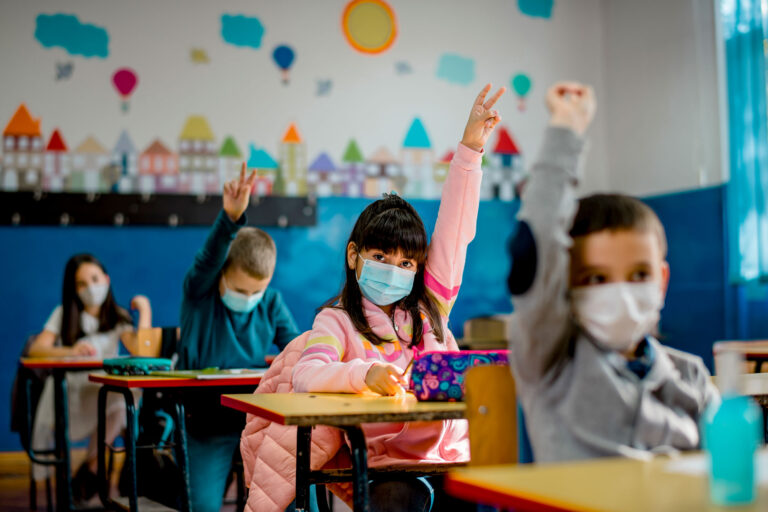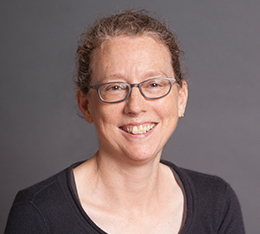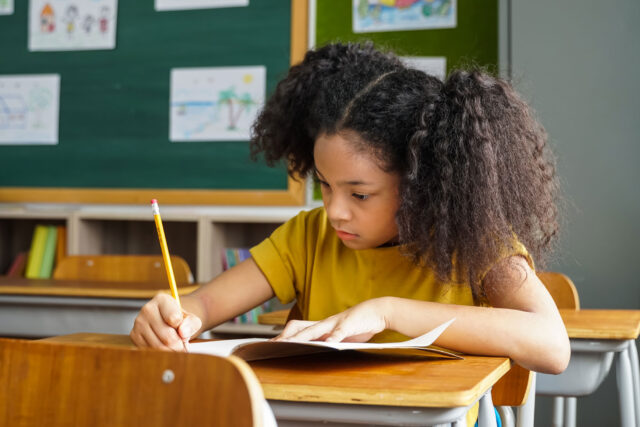Over the past two years, California’s public schools have dealt with unprecedented challenges. When PPIC vice president and senior fellow Lande Ajose talked last week with Tony Thurmond, California State Superintendent of Public Instruction, she asked him to name the biggest current challenge for K–12 education.
“You could almost list ten things as the top issue, and they’re all important,” Thurmond responded. He touched on several areas of concern—including staff recruitment and retention, and learning recovery—before singling out the need to address students’ social and emotional learning needs. “We’ve got to make sure that we can combat the high levels of depression that we’ve seen in young people during the pandemic, and we’re working on making that our number one focus.”
Key to this effort is Senate Bill 1229, which would establish a grant program to increase the number of mental health professionals serving children and youth. “We’ve got to build a workforce that can support our students and families,” Thurmond said.
California’s digital divide has also been a major focus throughout the pandemic. “If you think about a million students not having access to a computer,” Thurmond said, “it doesn’t surprise you that we see the kind of learning loss and gaps that our students experienced.” But he also noted that state and federal resources, along with partnerships with device manufacturers, have had an impact: “We’ve got some work to do but we’ve certainly laid the foundation for closing what has been a long-time digital divide for low-income kids and students of color.”
The superintendent gives California schools high marks for their efforts to reopen safely and equitably. “The state has done its part by providing billions of dollars for computers, for COVID resources, holding vaccine outreach events, trying to provide resources for after school and expanded learning programs,” he said. “But at the end of the day, each of our school districts has had to figure out how to make it work in their community.”
Thurmond sees literacy programs as an important way to spur learning recovery—and narrow a longstanding educational divide. “We know that reading is a gateway skill,” he said. “When students acquire this skill they can read to learn just about anything. We are sponsoring a number of pieces of legislation that would help accelerate our progress.”
More generally, Thurmond noted that the current state budget surplus “allows us to implement the kind of programs we’ve been advocating for decades”—including universal preschool, wrap-around student support, universal meals, and other initiatives. “We look at these programs as a package and we see them as a way to transform California education,” he added.
However, the volatility of state revenue and some aspects of California’s school finance system are key issues. Citing pending legislation that aims to help schools deal with declining enrollment and chronic absenteeism by tying funding to annual enrollment rather than average daily attendance, Thurmond said, “We are working hard to pass new legislation that we think will get important revenue and resources to our schools.”
***
PPIC’s Speaker Series on California’s Future invites thought leaders and changemakers with diverse perspectives to participate critically, constructively, and collaboratively in public conversations. The purpose is to give Californians a better understanding of how our leaders are addressing the challenges facing our state.
PPIC is a nonpartisan, nonprofit organization. PPIC does not take or support positions on any ballot measure or on any local, state, or federal legislation, nor does it support, endorse, or oppose any political parties or candidates for public office. Any opinions expressed by event participants are theirs alone and do not necessarily reflect any position of the Public Policy Institute of California.




